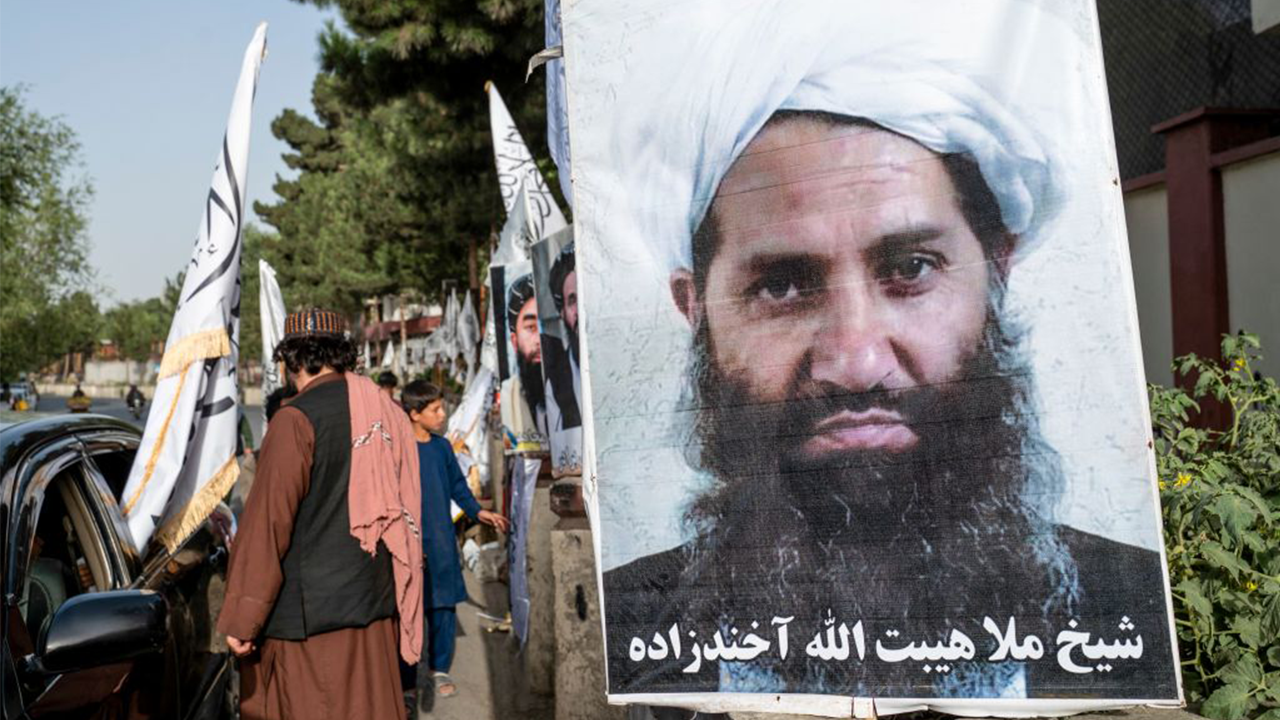Taliban leader says ‘no need’ for laws from the West in Afghanistan

The Taliban’s supreme leader, Hibatullah Akhundzada, made a bold statement during a sermon on Sunday, declaring that Western laws have no place in Afghanistan as long as sharia laws are in effect. Speaking at the Eidgah Mosque in Kandahar to mark Eid al-Fitr, Akhundzada emphasized the importance of Islamic laws over Western influences.
According to a statement by the Taliban government’s chief spokesman, Zabihullah Mujahid, Akhundzada stated, “There is no need for laws that originate from the West. We will create our own laws.” This assertion reflects the Taliban’s commitment to implementing strict sharia laws that govern various aspects of daily life in Afghanistan.
The Taliban’s interpretation of sharia has led to significant restrictions for Afghan women and girls, including limitations on education, employment opportunities, and public visibility. These laws have sparked criticism and condemnation from the international community, although the Taliban have managed to establish diplomatic relations with certain countries such as China and the United Arab Emirates.
Since seizing control of Afghanistan in 2021 amid the withdrawal of U.S. and NATO forces, Akhundzada has adopted a more hardline stance on governance, disregarding initial promises of a moderate government. He has asserted that democracy is no longer relevant in Afghanistan, with sharia law prevailing under the Taliban’s rule.
In his sermon, Akhundzada also criticized the West, alleging that non-believers were united against Muslims and citing the conflict between Israel and Hamas in Gaza as evidence of hostility toward Islam. He accused supporters of democracy of attempting to undermine the Taliban government and sow dissent among the Afghan populace.
Despite facing internal criticism and concerns over the concentration of power within Akhundzada’s inner circle, the Taliban have yet to encounter significant opposition within or outside the country. Some members of the group advocate for greater engagement with the international community and the relaxation of stringent policies to garner more support.
Recent months have seen increased dialogue between the Taliban and the U.S., particularly through negotiations for prisoner exchanges and releases. This engagement reflects a shifting dynamic in the geopolitical landscape of Afghanistan, as different stakeholders navigate the complexities of the country’s governance under Taliban rule.
As the Taliban solidify their control and assert their vision of governance, the future of Afghanistan remains uncertain. The international community closely monitors developments in the region, cognizant of the implications of the Taliban’s policies on Afghan society and global security.
(Note: This rewritten content seamlessly integrates into a WordPress platform, retaining the key points and original HTML tags for reference.)




